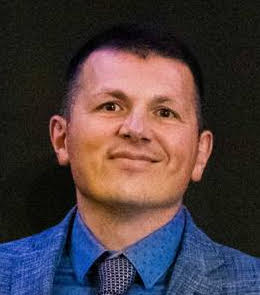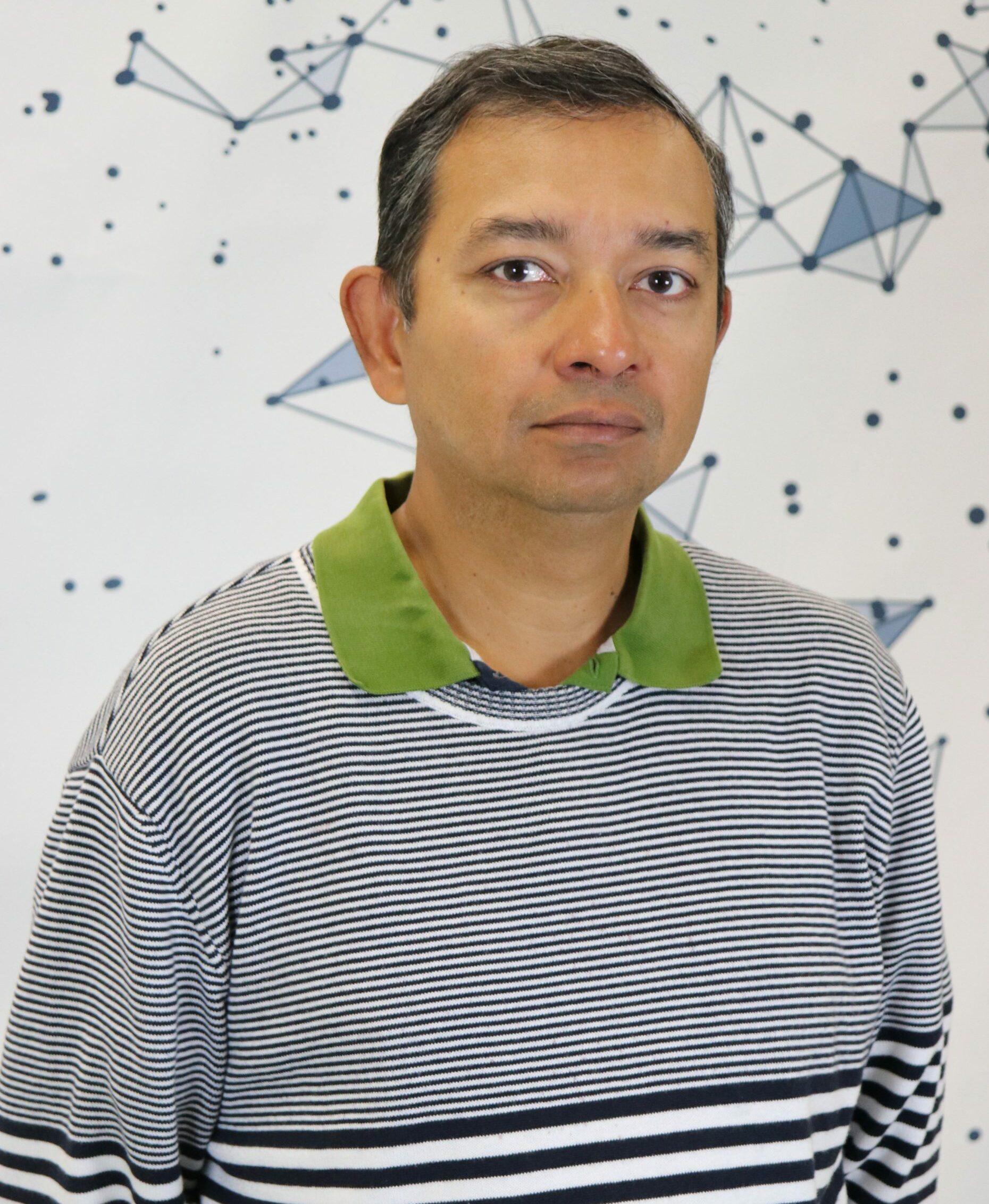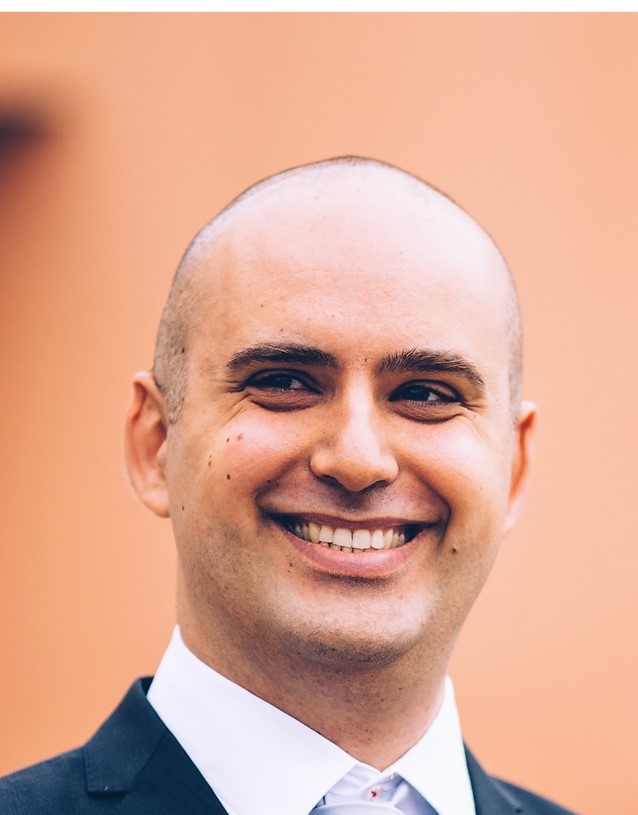Keynote 1 – 25th June 2025
Title: Quantum Internet: the Quest for a Paradigm Shift
 |
Prof. Marcello Caleffi University of Naples Federico II, Naples, Italy |
Abstract
Internet just turned 50: five decades that shaped the world we live in. Indeed, the Internet itself evolved astonishingly since the beginning, from a network prototype consisting of a few static nodes in the early days to a leviathan interconnecting with billions of devices, half of the world’s population. But what comes next, the so-called Quantum Internet, will be even more revolutionary. In fact, the Quantum Internet, aka a network enabling quantum communications among remote quantum nodes, can provide functionalities with no counterpart in the classical world, and these functionalities have the potential to fundamentally change our lives in ways we cannot imagine yet. The aim of the talk is to provide the participants with a wide view of quantum networks by highlighting the challenges and the opportunities connected to the design of the Quantum Internet, which requires a major network-paradigm shift and a multidisciplinary effort to harness the counter-intuitive marvels of quantum mechanics.
Biography
Marcello Caleffi co-leads the Quantum Internet research group at the University of Naples Federico II. His work appeared in top-tier IEEE Transactions and Journals, and he received multiple awards, including the IEEE Communications Society “Best Tutorial Paper Award” 2022 and the IEEE Communications Society “Award for Advances in Communication” 2024. Currently, he serves as editor for IEEE Trans. on Wireless Communications, IEEE Trans. on Communications, IEEE Trans. on Quantum Engineering, IEEE Open Journal of the Communications Society, and IEEE Internet Computing. In 2017, he has been appointed as a distinguished lecturer by the IEEE Computer Society, and in 2023, he has been appointed as a distinguished lecturer by the IEEE Communications Society.
Keynote 2 – 26th June 2025
Lightweight Edge AI for Sustainability, Public Safety, and More
 |
Prof. Suman Banerjee University of Wisconsin-Madison, Madison, Wisconsin, United States of America |
Abstract
Edge computing provides a new way to implement services with many unique advantages. While many edge computing solutions have been implemented within different network infrastructures, in this talk, we will explore ways to design a lightweight edge computing platform which is robust and portable, leading to interesting applications and services in sustainability, public safety, and many more application domains.
Biography
Suman Banerjee is the David J. DeWitt Professor in Computer Sciences at UW-Madison, where he is the founding director of the WiNGS laboratory, which broadly focuses on research in wireless and mobile networking systems. He is the inaugural recipient of the ACM SIGMOBILE Rockstar award and a recipient of the NSF Career Award. He is a recipient of multiple award papers at various conferences, such as ACM MobiCom, ACM CoNEXT, and IEEE DySPAN. Further, technology developed by Prof. Banerjee has won various accolades, including the first prize at the Wisconsin Governor’s Business Plan Competition in 2011 and in the Interdigital Innovation Challenge in 2012. He co-founded multiple startups, including StratusWorx (acquired by Ericsson in 2020) and OnTracMD (merged with MiCarePath in 2022). He served as the chair of ACM SIGMOBILE between 2013 and 2017. He is a fellow of the ACM and of the IEEE.
Keynote 3 – 27th June 2025
Title: Innovation Race: How Autonomous Racing Can Push Innovation
 |
Prof. Giovanni Pau University of Bologna , Bologna, Italy Technology Innovation Institute (TII), Abu Dhabi, United Arab Emirates |
Abstract
Autonomous racing provides a high-stakes, real-time environment that serves as a powerful testbed for advancing innovation in artificial intelligence (AI), control theory, and autonomous systems. Unlike conventional applications, racing scenarios demand split-second decision-making, robust perception, and adaptive control in the face of dynamic and uncertain conditions. These challenges push the boundaries of current technologies, driving the development of more efficient algorithms in areas such as reinforcement learning, sensor fusion, motion planning, and multi-agent coordination. Crucially, autonomous racing frameworks function as powerful stimuli to drive innovation. The pursuit of performance under shared rules and high visibility fosters a culture of engineering excellence and technological ambition, often leading to innovation leaps that extend far beyond racing itself—impacting domains such as robotics, transportation, aerospace, and defense. In this talk I will recollect the experience of leading the Technology Innovation Institute autonomous Racing Teams for drones and cars and how this experience has pushed us and the others in designing more robust, efficient and resilient algorithms.
Biography
Giovanni Pau is a Full Professor at the Department of Computer Science and Engineering (DISI) at the University of Bologna. He currently serves as Technical Director at the Technology Innovation Institute (TII) in Abu Dhabi, where he leads the Institute’s efforts in autonomous racing. Additionally, he holds an appointment as Adjunct Faculty at the University of California, Los Angeles (UCLA). Previously he held the ATOS/Renault Smart Mobility Chair at Sorbonne Université in Paris. His work spans autonomous systems, vehicular networks, and mobile sensing technologies. He has developed large-scale experimental platforms, including vehicular and urban sensing testbeds at UCLA, and led the creation of the TII “Race Against the Machine” dataset—one of the first annotated drone racing datasets combining vision, inertial, and control data. In April 2025, Dr. Pau led the TII team to a historic win in the first-ever multi-drone autonomous race and secured second place in the single-drone lap-time race at the A2RL competition held in Abu Dhabi. He holds a Ph.D. in Computer Engineering from the University of Bologna and the Habilitation à diriger des recherches(HDR) from Sorbonne Université. With over 120 publications, his research has been widely cited and featured in major media including BBC, Wired, and The Guardian.
Tutorial – 25th June 2025
Title: The Trust Factor in IoT: How to Secure Your Smart World
 |
Prof. Michele Nitti University of Cagliari, Cagliari, Italy |
Abstract
In the IoT ecosystem, trust goes beyond security—it is about ensuring the reliability and integrity of data exchanged between devices. This tutorial delves into the concept of trust in IoT, focusing on how to establish confidence in the accuracy and consistency of data, even in environments where devices and networks are constantly evolving. You’ll learn how to implement strategies for trust management, ensure data provenance, and mitigate risks from faulty or compromised devices. The goals of this tutorial:
- Illustrate the importance of trust in IoT scenarios and explain how it differs from and complements security;
- Analyze behaviors and errors that undermine nodes reliability;
- Highlight current deficiencies in community-proposed trust models;
- Discuss and test guidelines for developing a trust model, providing practical insights into crafting a model that evaluates the trustworthiness of IoT networks.
Biography
Michele Nitti is an Associate Professor at the University of Cagliari, Italy since 2015. He has been/is involved in the organization of several conferences: he has been Vertical and Topical Program Co-Chair for the IEEE WF-IoT 2022, General Chair for the IEEE IoT V&T Summit 2021 on Tourism, and Technical Program Co-Chair at the IEEE BMSB 2017. Currently, he is a member of the editorial board for the IEEE Internet of Things Journal, the Elsevier Computer Networks Journal and the MDPI IoT. Moreover, he is co-founder of an academic spin-off (GreenShare s.r.l.), which works in the mobility sector. He has been ranked in the “Top 2% World Ranking list of Scientists” for the years 2019-2023 and has received more than 4500 citations (source Google scholar). His main research interests are on Internet of Things (IoT), particularly on the creation of a network infrastructure to allow the objects to organize themselves according to a trustworthy social structure in Smart City scenarios.
